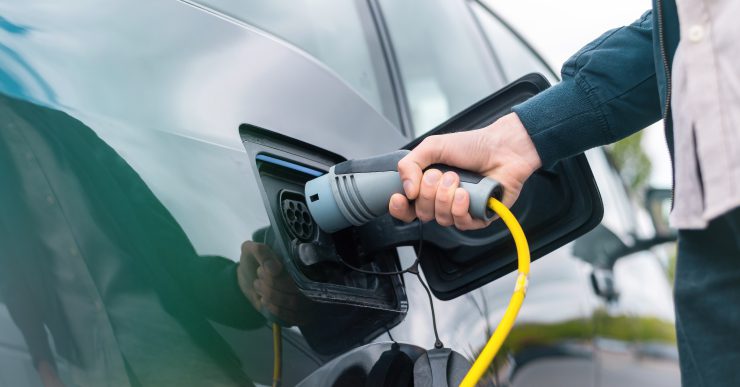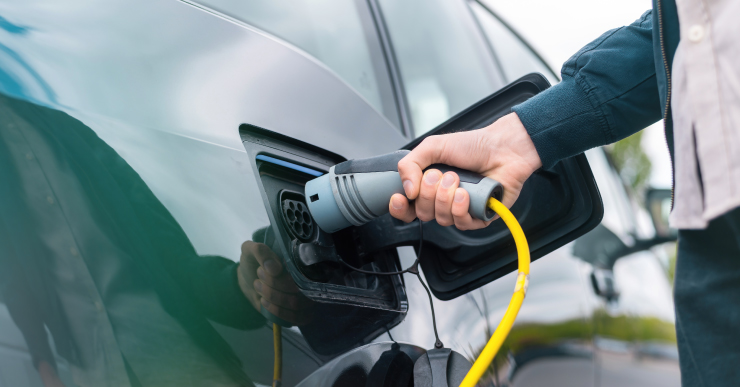
Why Do Automaker Companies Work With Third Parties to Install EV Charging Networks?
The EV market is growing rapidly across the world. The projected compound annual growth rate (CAGR) for this sector from 2021 to 2030 is 94.4%. As Elon Musk said years ago, the transition to renewable energy is a matter of when and not if.
Unfortunately, the road ahead for the industry will not be smooth and without obstacles. From the limitations of lithium-ion batteries to cutting down costs, we still don’t have the answer to some of the most pertinent questions regarding the future of EVs.
One such challenge involves the installation of EV charging networks. However, we may just have discovered the solution to this problem. Evidence shows that working with third-party manufacturing companies is the smartest approach to installing EV charging networks.
Why are automobile companies leaning toward third-party manufacturing for charging networks?
In the US, there were 96,536 public charging ports as of December 2020. It’s not a small number, especially considering that there are around 140,000 gasoline stations in the country.
Much of the interest in EVs was led by one company alone – Tesla. That explains why the United States has so many charging stations. However, the equation is changing as legacy automobile companies are getting into the EV space.
With the entry of different companies into the EV market, the average cost of an electric car is set to come down. But there’s a challenge that these companies need to address first and it has turned them towards third-party manufacturing.
The challenge of installing EV charging networks
The average cost of installing an EV charging station is $833 for a Level 1 station and $1,300 for a Level 2 station. But it’s the cost of a domestic charging unit, not a commercial charging station. The prices go up as the capacity of the charging station increases. The cost doesn’t make it feasible for automobile companies to install their own charging networks.
When we look at gas stations and petrol pumps, the operation model is different. It’s a separate entity, often with amenities other than petroleum. EV charging stations are designed for self-use. In principle, an EV charging station can work perfectly without any staff. However, turning it into a self-sustaining commercial unit makes it difficult.
Another problem with EV charging stations relates to location and accessibility. Highways and expressways can span for miles without any living being in sight. The inherent limitation of battery-powered cars makes it impossible to prepare for a sparsely populated route. Furthermore, you cannot carry/install additional batteries like you could carry petrol/diesel. In effect, this translates to the complete uselessness of electric cars for adventurous long-distance trips.
How are automobile companies addressing these challenges?

Automobile companies have realised that going solo on EV charging infrastructure would not be feasible in the long run. On the other hand, coming together would be beneficial for all EV manufacturers. The more accessible and useful the charging networks are, the more people would be interested in buying electric cars.
In 2015, Volkswagen and BMW got together and financed a ChargePoint network of 100 public fast chargers along high-traffic corridors on the Northeast and West Coasts of the United States. It was among the earliest ventures that used third-party manufacturing to set up EV charging networks.
This project’s success opened automaker companies’ eyes in terms of working with third-party EV charging unit manufacturers. Now the same thing is also happening in Europe, where Ford Motor Co., BMW, Daimler, and Volkswagen are installing 400 fast-charging stations.
Even if it’s rather unusual, companies are preferring to work with each other in this area instead of working against each other.
What are the advantages of working with third-party manufacturing companies?
The advantages of working with third-party manufacturers have some similarities with the benefits of outsourcing tasks. However, there are some important differences.
First, automakers are working with third-party manufacturers on joint projects. The stakes involved are equal for all the member companies. If the project turns out to be a failure for one, it’d also be a failure for everyone.
One of the biggest advantages of third-party manufacturing is cost reduction. As a result, it helps automakers save millions of dollars over the long term.
Another advantage of third-party manufacturing relates to accessibility. Since multiple companies fund these projects, they can access hard-to-reach areas and isolated roads.
The culmination of these benefits eventually results in heightened interest in buying electric cars. As the infrastructure improves, so will the ease of driving electric cars. Consequently, more and more people will buy EVs, and sales will boost.
The future of EV charging
Third-party manufacturing will undoubtedly play a key role in the future of the electric vehicle market. The relationship between EV sales and charging infrastructure is symbiotic. That points to the fact that the necessity of EV charging infrastructure is paramount. Since EV adoption is only a matter of time now, we should gear up as soon as we can.
Head over to Oakter for all third-party manufacturing and contracting queries.

